Why We Should Care About the Upcoming U.K. Elections
The British general election may prove as significant for Europe, and even for the United States, as for Britain itself.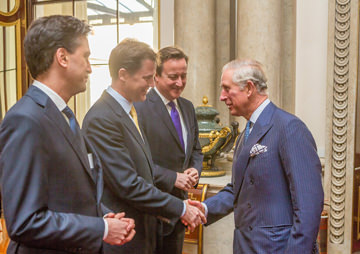 Labour Party leader Ed Miliband, left, Deputy Prime Minister Nick Clegg and Prime Minister David Cameron chatting up Prince Charles. (Simon Jones / CC BY 2.0)
Labour Party leader Ed Miliband, left, Deputy Prime Minister Nick Clegg and Prime Minister David Cameron chatting up Prince Charles. (Simon Jones / CC BY 2.0)
Editor’s Note: William Pfaff died on April 30 at age 86 in Paris, after a long, successful career as a writer. As a tribute to the distinguished foreign policy commentator, Truthdig is reprinting his most recent column, which first ran on April 22, 2015.
PARIS — The British general election early next month may prove as significant for Europe, and even for the United States, as for Britain itself. The British electorate must make an unprecedented choice among Conservatives, Labour, Liberal Democrats, Scottish Nationalists, UK Independents (or UKIP, who want to quit Europe) and Greens, to name only the parties likely to have any influence on the outcome.
This dazzling array of political choice, to voters collectively accustomed for nearly a century only to Tories, Liberals, Labour and an unelectable left, offers a conundrum to those who would forecast the outcome this year. As of this writing, the Conservatives and Labour are so closely matched in voter opinion as to make virtually no difference. Either, winning by the miniscule margins suggested today, is almost certain to need a coalition partner to construct a government. The candidates for that role are the Liberal Democrats, who shared rule with the Conservatives in the present outgoing government, but who have always harbored leftist sympathies and would shock few if they joined a new government with Ed Miliband’s reformed Labour Party.
However what British commentators find more intriguing is the possibility that the Scottish Nationalists, newly led by Nicola Sturgeon, could come in third (or even second, but without a result large enough to make them the official opposition). It nonetheless is now the third largest party in Britain, with 110,000 signed-up members, and would therefore have a powerful claim to a coalition position, and be strong enough to impose its mark on new government’s policies. Scotland in that case might have lost its bid for independence last year, but would have irresistible influence in a coalition government of Britain.
Then we have UKIP, the withdraw-from-the-EU party. Or one could say, one of the two anti-European parties in Britain if we count the Conservative Party according to where its heart really wants to be. Business, the City of London, and pressure from the United States keeps the Tory Party from bolting from its orthodox establishment position. Its members generally hate the EU, but its leaders accept the pragmatic arguments that the British manufacturing economy needs Europe and British high finance would be unlikely to hold its position as the world’s most important competitor of Wall Street without EU membership. Finally, what is Britain’s role if it ceases to be Washington’s entry into Europe and agent of influence in Brussels?
David Cameron, Tony Blair and all their postwar predecessors subordinated national pride to Washington’s wishes. They did so because that is what their Great Man, Winston Churchill, had told them they must do, and because Dwight Eisenhower threatened serious damage to the pound sterling if Britain did not surrender its one (foolish in its own terms) strike out for freedom from America, when it invaded Egypt to seize the Suez Canal in 1956.
Churchill was convinced that Britain must invent and nourish the “special relationship” even though his own country had won the Second World War in Europe. It held out against Hitler, won the Battle of Britain, checked Rommel in North Africa, and won the battle of El Alamein at the same moment the Russians won at Stalingrad; Hitler never won a major battle after that.
But Churchill recognized that America’s mass of men and material produced VE Day in Europe (even though the British Empire put more men ashore in Normandy on D-Day than did the United States). He foresaw the “special relationship” as one of moral equals — Greece to Rome and all that. Washington could see it only as Britain’s essential subordination. For this reason it is highly interesting that the co-author of Labour leader Ed Miliband’s political biography, the broadcaster Mehdi Hasan, writes in the New York Times that despite Miliband’s childhood in the U.S. and time teaching at Harvard, he has been a consistent opponent of U.S. (and Israeli) foreign policy.
Thus the election in May could produce one (or more) dramatic outcomes in transatlantic and trans-channel relations. The first is British withdrawal from the European Union. That’s what UKIP leader Nigel Farage wants. But after a highly publicized pre-campaign, Farage seems today to be fading. His BBC party debate last week was not a success. Critics said he was thoroughly overshadowed by the feisty Nicola Sturgeon of the Scottish National Party.
Tory leader David Cameron, if he wins, promises an eventual national referendum on withdrawal from Europe. Popular support in Britain for leaving Europe is substantial but may fade when it’s time to confront the reality of so drastic a step.
If Labour wins, and should it form a coalition with Scottish Nationalists or Liberal Democrats, the principal consequences will be domestic, in economic and social policy, and in the role Britain plays in Brussels.
If Mehdi Hasan is right, a Labour-led government or coalition might produce a serious change in U.S.-European relations and U.S. foreign policy. This could be dramatic indeed since it is beginning to be understood in the United States, as well as Europe, that the postwar configuration of international organizations, and of both political and economic power, is shifting under the influence of China and Vladimir Putin’s Russia — and by the miscalculations and overreaching overseas of the Obama administration.
© 2015 Tribune Media Services, Inc.
© 2015, Washington Post Writers Group
Your support matters…Independent journalism is under threat and overshadowed by heavily funded mainstream media.
You can help level the playing field. Become a member.
Your tax-deductible contribution keeps us digging beneath the headlines to give you thought-provoking, investigative reporting and analysis that unearths what's really happening- without compromise.
Give today to support our courageous, independent journalists.

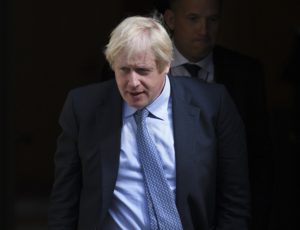

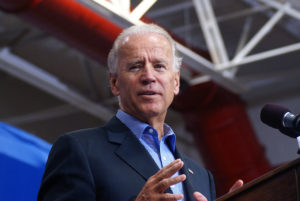
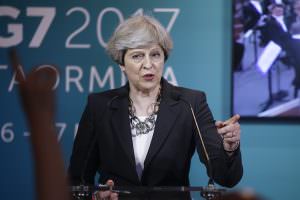
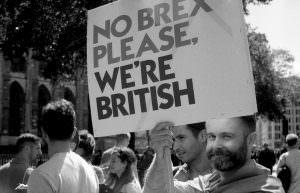
You need to be a supporter to comment.
There are currently no responses to this article.
Be the first to respond.